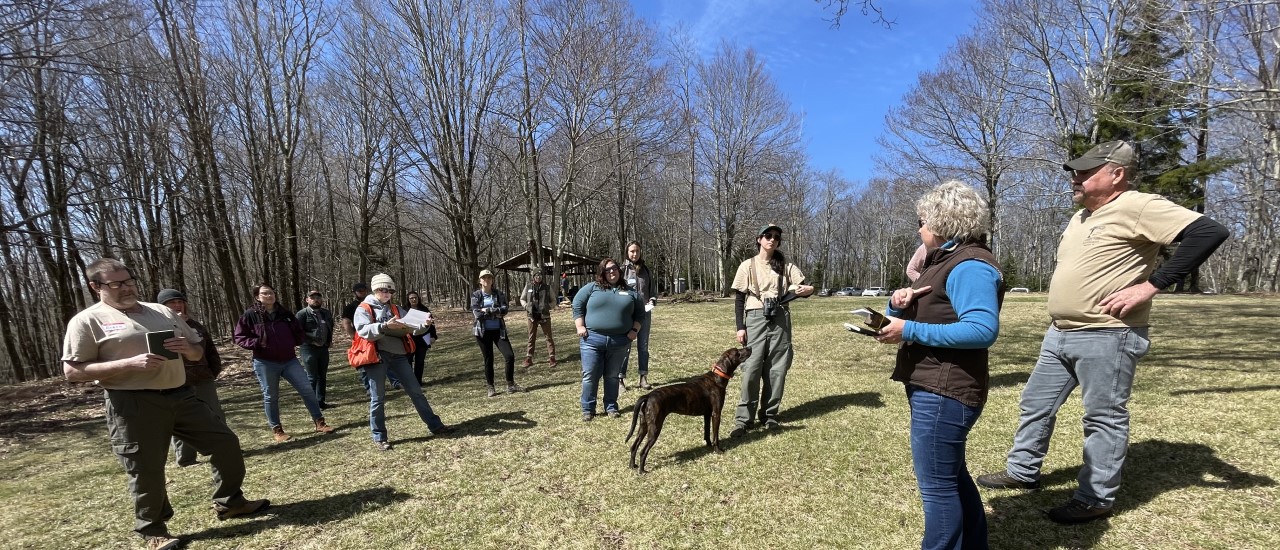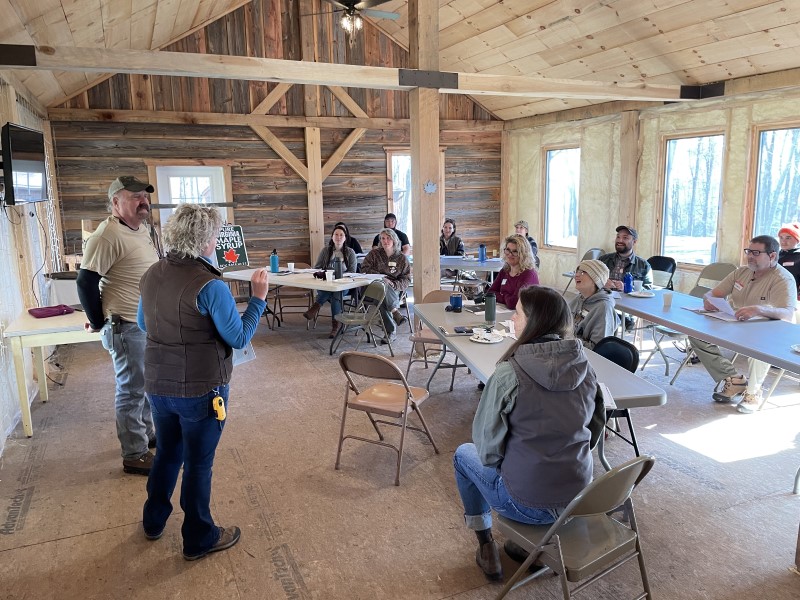
(Visited 223 times, 1 visits today)

“Agroforestry” is an agricultural practice that has been central to generations of West Virginians and responsible for many of the products associated with Appalachia’s heritage today, including ramps, maple syrup, and ginseng. With societal changes, namely the industrialization of agriculture, the region’s knowledge and practice of agroforestry is becoming scarcer. But a movement of forest farmers is emerging to renew and grow the heritage of Appalachian agroforestry.
Artisans and community organizations in the mountains of West Virginia are spearheading the preservation of local knowledge, educating West Virginia’s woodland stewards and visitors, and making artisan goods that showcase the bounty of the forest and honor the region’s heritage. Meanwhile, for just over three decades, the United States Department of Agriculture (USDA) has been recognizing the value of “the intentional integration of trees and shrubs into crop and animal farming.” The USDA is contributing to the body of research on agroforestry farming systems and practices and funding programs to incentivize landowners to adopt these practices.
The opportunity is vast for West Virginia’s woodland stewards. With twelve million acres of diverse forests covering 78% of West Virginia, agroforestry farming systems and practices demonstrate an ecologically and economically beneficial approach to farming in seemingly unproductive, low value landscapes. But, despite the USDA’s investment in agroforestry, those who assist landowners- West Virginia’s technical service providers- lack the needed skills and knowledge.
Future Generations University Appalachian Program is developing “Reading the Woods,” a professional development program for technical service providers who service West Virginia’s woodland stewards. “Reading the Woods” is partnering with West Virginia’s federal and state agencies, university extension services, nonprofit technical assistance organizations, consulting foresters, community groups, and local artisans to integrate diverse skills, knowledge, and resources necessary to offer technical assistance to woodland stewards. The heart of the program is an online, opensource toolbox. The toolbox is designed to be a central information center for agroforestry-related resources to support technical service providers from all educational backgrounds and skill levels. It includes information on forest farming, silvopasture, and riparian forest buffer areas, and showcases various timber and non-timber forest products and services in five enterprise categories: culinary, medicinal, greenery/floral, ecosystem services, and eco/agritourism. Most importantly, the new program includes a facilitation guide, with an accompanying infographic, which can serve as a general introduction to agroforestry. The aim of the guide is to introduce to technical service providers a holistic approach to sustainable forest management that assesses the social, environmental, and economic components of a forest to identify potential nature-based enterprises. The staff at Future Generations University seek to support technical service providers in filling this knowledge gap and guiding woodland stewards in assessing the enterprise potential of agroforestry practices.

Through the online training sessions and in-person field practices, technical service providers are introduced to the program and the toolbox. The training places an emphasis on creating opportunities for learning and networking across agencies, organizations, and sectors in West Virginia. The intent is to extend the practice of collaboration into a technical service provider’s day-to-day service to better serve West Virginia’s woodland stewards and forests.
The growing interest of woodland stewards to implement agroforestry practices is applying further pressure on our state and federal programs to access USDA resources for agroforestry that up until now have been largely unknown, misunderstood, or underutilized by West Virginia.
“Reading the Woods” is a program supported by the National Institute of Food and Agriculture, U.S. Department of Agriculture, through the Northeast Sustainable Agriculture Research and Education program under subaward number ENE21-168.
Read the latest dispatches from our team, stories of community-led transformation, updates on alumni and profiles of students as we work to create a more sustainable, just and equitable future. These voices center strength, hope and resilience, paving the way for everyone to participate in building Future Generations.